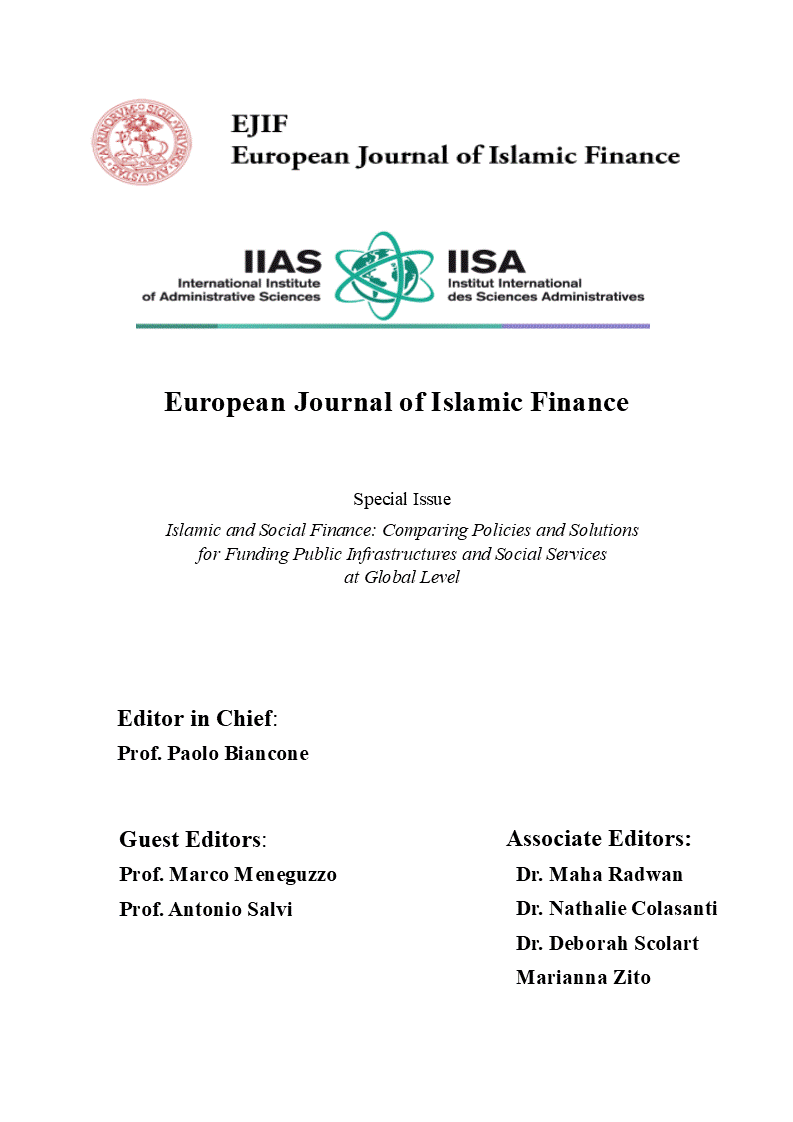Corporate Social Responsibility in Islamic Culture. Comparison between Western CSR and Islamic CSR: focus on Islamic Reporting Initiative and Islamic Financial Institution.
DOI:
https://doi.org/10.13135/2421-2172/3065Keywords:
Corporate Social Responsibility, Reporting, Accountability, Islamic CSR, Islamic Reporting Initiatives, Islamic Financial Institution.Abstract
The aim of this paper is to explore the state of the art of Corporate Social Responsibility (CSR) in Islamic culture. This topic is interesting not because Corporate Social Responsibility is a new concept, but because some corporate sustainability reporting values developed in Western Countries, as AA1000 or GRI Standard, are not focused in Islamic values and beliefs. In fact, Sustainable Development is not a new concept, but it is embedded in the fundamental codes of conduct in Islamic Societies and Laws through Shari’ah (Aman, 2016). The objectives are: a) literature review of Islamic Corportae Social Responsibility and Shari’ah connection with CSR. In particular, descriptive analysis of Islamic Financial Istitution (IFI), which offer alternatives to the commercial activities that Shari'ah prohibits, to answer to the dichotomy between the need to trade with the West and to follow the commands of Islam (Taman, 2011); b) a qualitative comparative analysis between Islamic CSR (ICSR) and conventional CSR c) a documental analysis (Bowen, 2009) of the Islamic network that implements CSR strategies, policies and practices in Islamic Societies (IRI- Islamic Reporting Initiatives) supported by an ad-hoc interview held with an IRI’s Staff member. The conclusion of this research discusses the perspective of Islamic view in sustainability reporting by incorporating the concept of Tawhid which provides a holistic guidance based on Islamic beliefs, values and concepts (Aman, 2016) and, in specific, the main differences between western and Islamic Corporate Sustainability Reporting perspective. The finding of the paper is to be useful to integrate and develop sustainable strategies for Islamic companies.Downloads
Published
How to Cite
Issue
Section
License
EJIF content is licensed under a Creative Commons Attribution 4.0 International License.
Authors keep the copyrights for their work and give the journal the work's first publication copyright, which is at the same time licensed under a Creative Commons License – Attribution, which in turn allows other parties to share the work with an acknowledgement of the work's authorship and initial publication in this journal.


 EJIF has been approved for inclusion in
EJIF has been approved for inclusion in  EJIF has been approved for inclusion in
EJIF has been approved for inclusion in  EJIF is a member of
EJIF is a member of  EJIF is listed in the ANVUR (Italian National Agency for the Evaluation of Universities and Research Institutes) as a scientific journal in both
EJIF is listed in the ANVUR (Italian National Agency for the Evaluation of Universities and Research Institutes) as a scientific journal in both 
